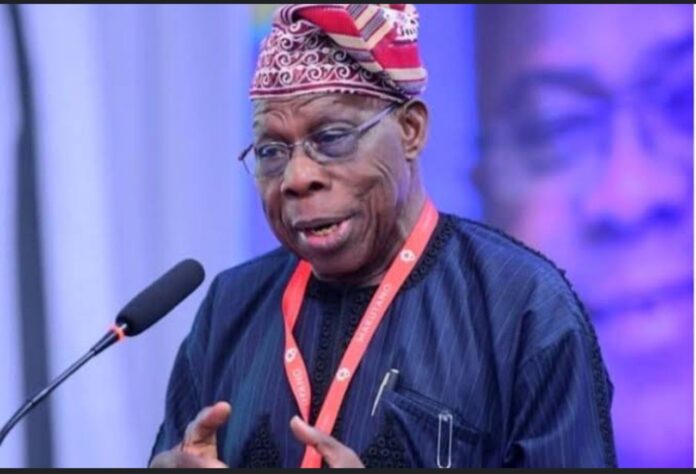By Hauwau Shehu Maikeffi
Former Nigerian President Olusegun Obasanjo has asserted that democracy in Africa is failing because it does not align with the continent’s cultural values and societal structures. Speaking at a colloquium in Abuja on March 24, 2025, commemorating the 60th birthday of former Deputy Speaker Emeka Ihedioha, Obasanjo emphasized the need for a democratic model that resonates with African traditions and effectively serves its people.
Obasanjo questioned whether Africans are practicing true democracy or merely adopting Western-style liberal democracy. He highlighted that the current system often fails to reflect the continent’s indigenous cultures and ways of life.
He expressed reservations about representative democracy, suggesting that it often benefits a select few rather than the broader populace. Obasanjo noted that democracy has become a system where a small number of people govern over a large number who are deprived of essential needs. 
He highlights the existence of pre-colonial governance systems that effectively met the needs of African communities, Obasanjo advocated for a redefinition of democracy that incorporates African contexts and content. He emphasized the importance of developing a system that delivers equitable benefits to all citizens, not just a privileged minority.
Some individuals and scholars concur with Obasanjo’s viewpoint, emphasizing the necessity of tailoring democratic systems to reflect African cultural and societal nuances. They argue that such an approach could enhance governance effectiveness and public trust.
Conversely, critics point to Obasanjo’s tenure as Nigeria’s leader, highlighting instances where his actions may have contradicted democratic principles. They question the credibility of his critique, suggesting that past leadership practices have contributed to current governance challenges.
The discourse extends to a broader debate on the suitability of Western democratic models in non-Western societies. Some argue for the adaptation of these models to local contexts, while others advocate for entirely indigenous governance frameworks.
Obasanjo’s reflections invite a critical examination of the applicability and effectiveness of Western-style democracy in Africa. They underscore the importance of developing governance systems that are culturally congruent and capable of addressing the unique challenges faced by African nations. This discourse encourages policymakers, scholars, and citizens to engage in dialogues about crafting democratic models that truly serve the interests and reflect the values of African societies.










